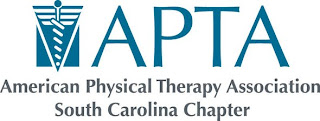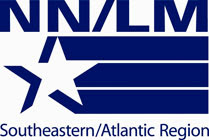We have had a lot of items post to the exchange in the past few weeks. Please don’t forget to check in frequently. Why? We had a “like new” Acorn Stairlift that was worth over $3000 post and was snatched up within an hour for free. If you only check every other week you may miss the big tickets items that don’t stay up for very long. Also, please don’t forget to check out the “needed” items to help people find the equipment they need for everyday activities.
If you have questions about items on the Exchange, please visit the page at
http://www.scatpexchange.net/ and find the contact information for these and other items. You must login (or create a new account if you are a new user) to see the contact information.
If you have logged in and still have questions please call or email Catherine Leigh Graham at 803-434-3189 or
Catherine.Graham@uscmed.sc.edu. Note: If you can’t get Catherine, call Janet Jendron at (803) 446-2566 and email her at
Janet.Jendron@uscmed.sc.edu.
***SC Assistive Technology Exchange February 2010 Update***
Items Needed
Computers and related
· HP Laserjet PrinterDaily Living
· Boys Shoes For AFO's
· Catheter Adapter Tips
· Commode/Shower Chair
· Diapers-Medium
· Electric Patient Lift
· Feeding Pump Kangaroo
· Jevity 1cal
· Nutrene Jr. Formula
· Pulse Oximeter
· Suction Machine
· Quickie Zippie Tilt-in-Space Wheelchair
· Winsford Feeder vironmental Adaptations
· Ceiling Track Lift
· Therapy Cooler, Breg
· Vitaeris 320 Hyperbaric Chamber
Mobility, Seating & Positioning
· 42" Rifton Prone Stander
· Bath Chair
· Child's Corner Chair
· Craftmatic 1 Bed
· High Low Chair Reduced
· Hoveround MPV4 Scooter
· Invacare Walker model 6270
· Invacare Walker model 6271
· Jazzy Power Chair
· Jazzy Pride 1121 Power Wheelchair
· Merits P182 Powerchair
· Model B330AL Joerns low height electric bed
· Model B675 electric bed, Joerns
· Patient Lift Device, Invacare 2005
· Power Patient Lifter, Hoyer Deluxe Lifter HPL402
· Power Wheelchair, Merius
· Power wheelchair, Jazzy 1120/2000 w/ attendant drive
· Power wheelchair, Permobil C300
· Pride Jet 2 HD (Heavy Duty) Scooter
· Pride LX 12 Power Wheelchair
· Reclining Shower Chair
· Reduced Gap Half-Length Bed
· Small Gait Trainer Reduced
· Small Youth Caregiver Operated Wheelchair
· Squiggles Early Sitting System
· Prone and supine standing frame Gazelle PS
· Convaid Safari Stroller
· Therapeutic Wheelchair Cushion, Vector - Vicair Adjuster 10
· Therapy Air Mattress APM2, Span America
· Youth Caregiver Operated Wheelchair
· Power patient lift device, Guldman- model GH2
Other
· Halo Helment
· Nebulizer, Proneb Ultreya
Recreation, Sports, and Leisure
· Rifton Adaptive Tricycle
· Pool Lift, Recreonics
· Swing Seat, JennSwing Cubby
Speech Communication
· Assistive Tech Speech Communicator, Assistive Tech Mercury II
· Speech Communication Device, ERICA Eye Gaze Speech Generating Device
Vehicle Modification and Transportation
· 2001 W/C Accessible Dodge Sport Caravan
· Dodge 2500 W/C Accessible Van 1998 Full size
· Harmar Wheelchair Lift
· Wheelchair Accessible Van, 2005 Toyota Sienna LE Rampvan
· Wheelchair Accessible MiniVan, 2006 Dodge Grand Caravan SXT
· Wheelchair lift, vannator /2000, Black
The SC AT Exchange website may be viewed by clicking the link in this post's title.
 THURSDAY, Feb. 25 (HealthDay News) -- New research is providing more insight into a gene linked to autism in humans: When the gene is turned off in mice, they have trouble learning and become obsessive.
THURSDAY, Feb. 25 (HealthDay News) -- New research is providing more insight into a gene linked to autism in humans: When the gene is turned off in mice, they have trouble learning and become obsessive. The YAI Network’s International Conference attracts an annual attendance of more than 3,000 people and serves as a major forum for the exchange of ideas and the introduction of new models and strategies that have a positive impact in the field of developmental and learning disabilities. The focus of our conference is on treatment and practices, new models and strategies that enhance the lives of people with developmental and learning disabilities and their families.
The YAI Network’s International Conference attracts an annual attendance of more than 3,000 people and serves as a major forum for the exchange of ideas and the introduction of new models and strategies that have a positive impact in the field of developmental and learning disabilities. The focus of our conference is on treatment and practices, new models and strategies that enhance the lives of people with developmental and learning disabilities and their families.












